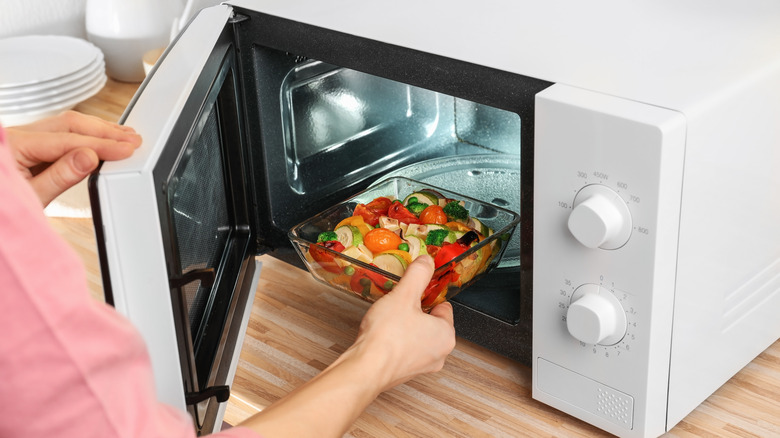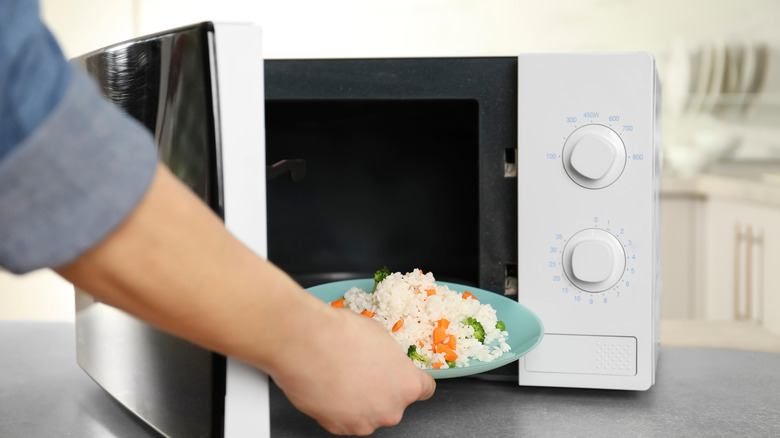Don't Believe This Microwave Nutrition Myth
You've probably heard the old rumor before. "The radiation in microwaves make your food irradiated and can give you cancer! They're not healthy," a claim in a long list of online theories. In some respects, these claims are correct. Eating pre-packaged frozen dinners all the time isn't as healthy as just cooking a meal yourself. While microwaves do use radiation to heat food, this is done through vibration of water molecules with no actual radiation being absorbed, and whatever radiation is inside the microwave isn't as powerful as X-ray radiation (via Cancer Council). In the end, most of these rumors are simply just that: misunderstandings or straight myths.
Yet, is microwaving food even good for you? It may not cause radiation poisoning or make you grow new limbs, of course, but is it better to cook your food in a microwave rather than cook it in the oven? There is a myth that using a microwave could destroy certain vitamins and nutrients in your food due to the cooking process. Fortunately, the myth may not be all that true, and you may even find yourself "nuking" your vegetables instead of just boiling them.
The truth behind microwaving your meals
In a sense, the claim that microwaving your food destroys some nutrients and vitamins is correct — although this applies to all sorts of cooking methods. No matter how you cook your food, certain vitamins and minerals will be destroyed in the process. According to Science Focus, microwaves are actually one of the best cooking methods for vegetables. As a vegetable such as broccoli or carrot cook in water as per a normal boiling process, the water leaches out some nutrients. During the microwaving process, however, only a small amount of water is used, so more nutrients are preserved within the vegetables as they steam.
Harvard Health's report also recommends microwaving over boiling, noting the combination of the fast cooking time and low water usage as keys to preserving a large amount of nutrients and vitamins over any other cooking method. BBC Future gave a more neutral input on the microwaving process, noting a previous study displayed a 97% loss of flavonoids (compounds with anti-inflammatory properties) when using the microwave for vegetables. The article cited that other tests performed varied in cooking times, water content, and temperature. While microwaving was shown to be more efficient in nutritional gain than boiling, there are certain vegetables that fare better in the microwave than others, such as spinach, broccoli, green beans, and peppers.
Even though there is no real way to prevent nutritional loss in cooking, a microwave may be your best friend to help stay healthy.

